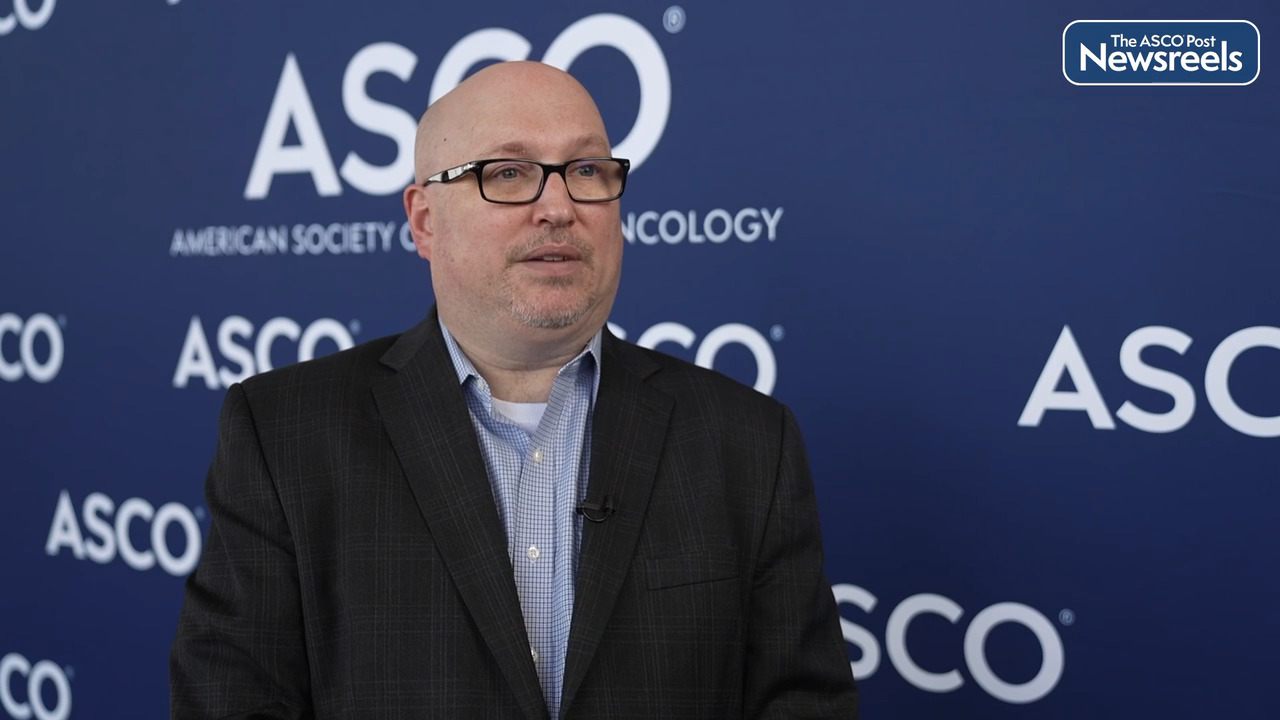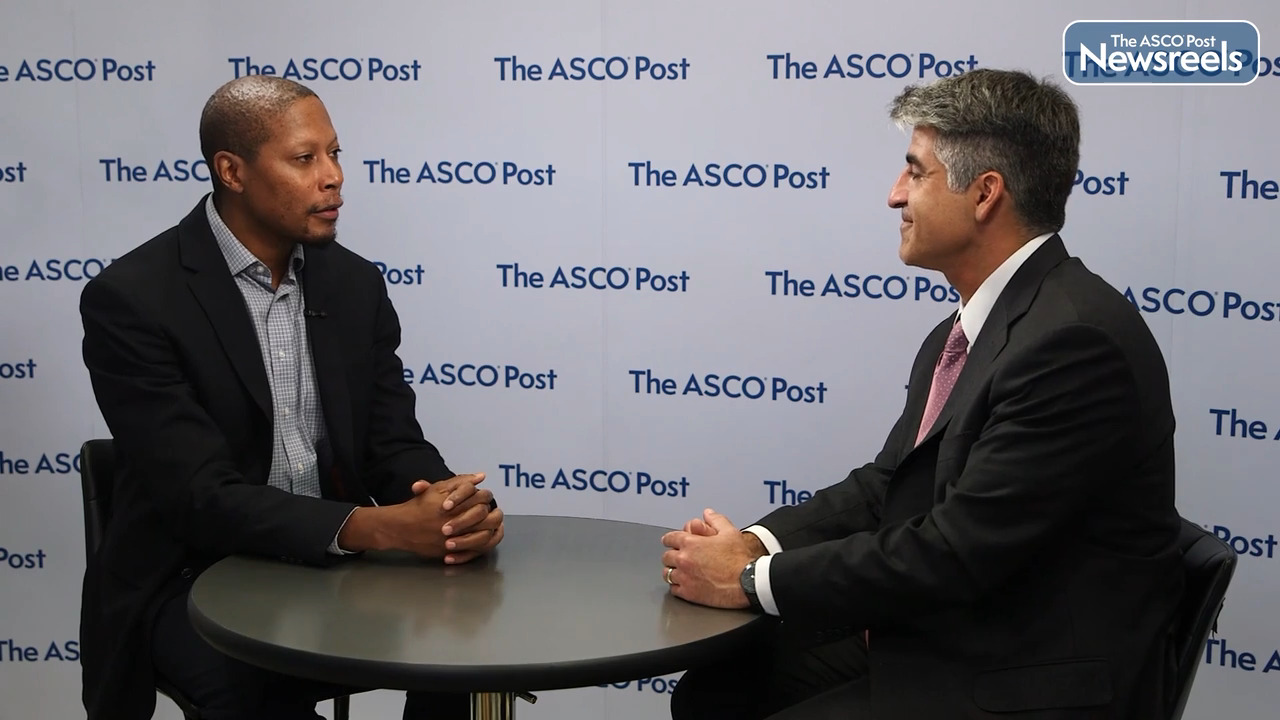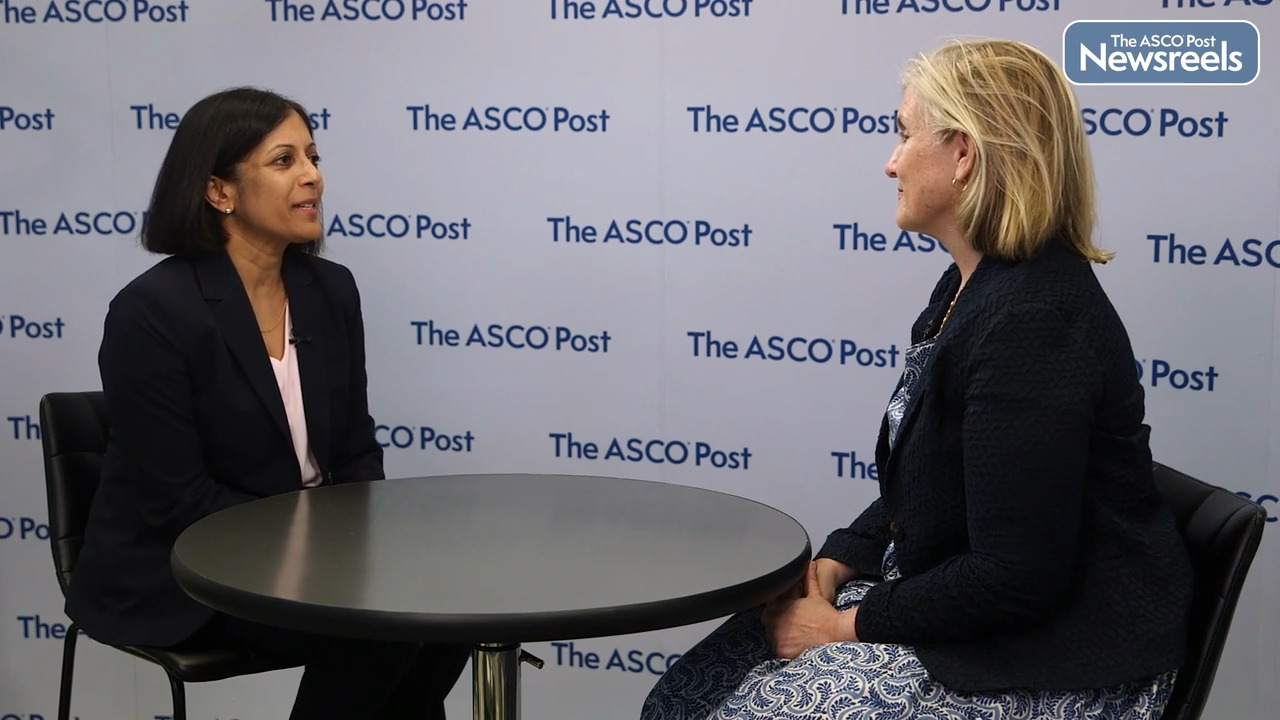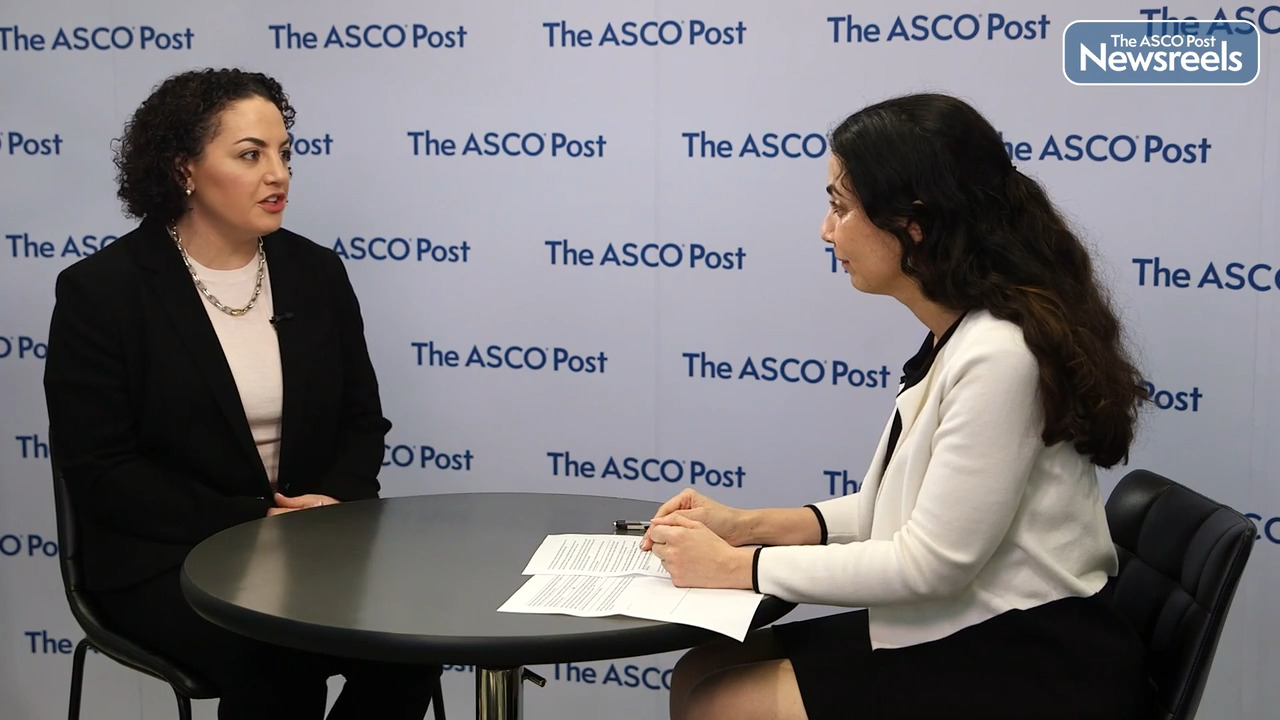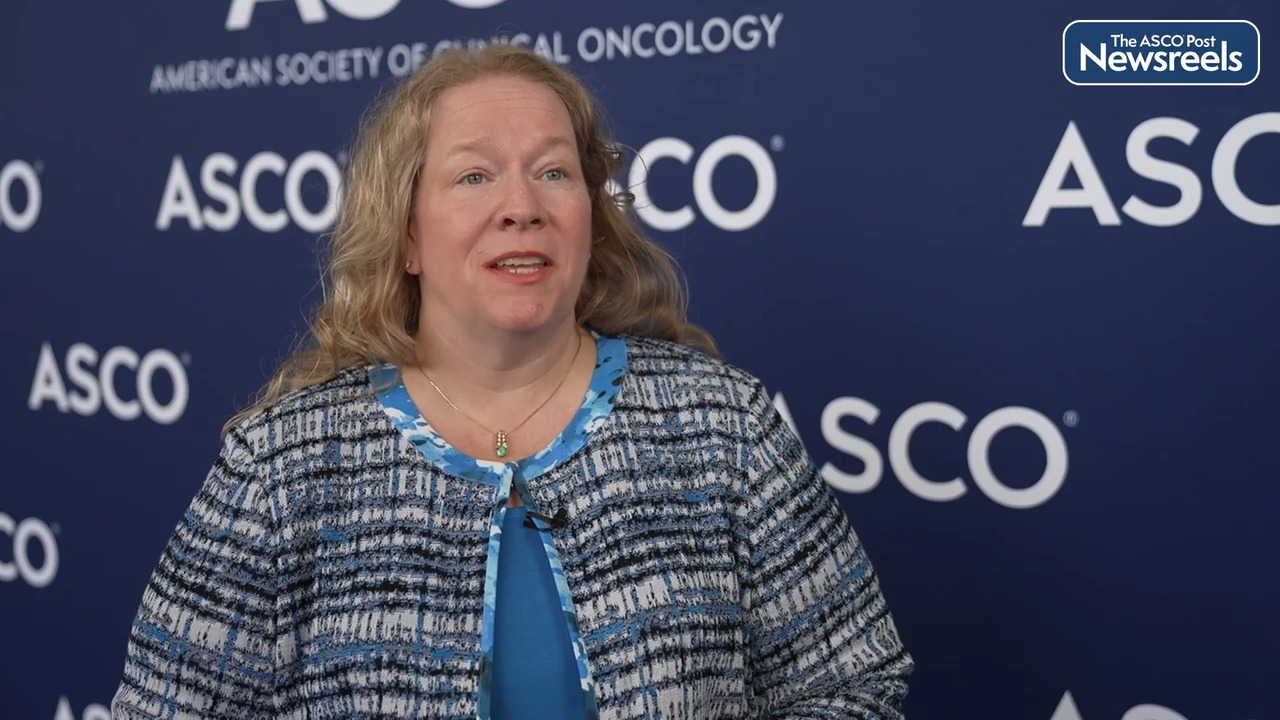Transcript
Disclaimer: This video transcript has not been proofread or edited and may contain errors.
Lisa A. Carey:
Javier, it is such a pleasure to have the chance to talk with you about the PHERGain presentation here at ASCO 2023. You guys designed an incredibly ambitious trial a few years ago. You've published on the first primary endpoint with the pathologic complete response of a no-chemo component driven by knowledge of responsiveness identified as PET scan responders. And at ASCO 2023, we now have the key other secondary endpoint of invasive disease-free survival, does it work. So tell us a little bit about... If you would, frame the earlier publication of the PCR endpoint and the design of the trial and then catch us up on what's happening with outcomes.
Javier Cortes:
So thanks very much, Lisa. No. I think you're right. I think that when we have started to see that with anti-HER2 therapies without chemotherapy, we achieved impressive pathological and complete remissions, patients will start to [inaudible 00:01:15], "How can we move forward with a new strategy without the need of giving chemotherapy?" And that's why we decided the PHERGain that you said before. And the first primary endpoint observed that in patients who did start with trastuzumab and pertuzumab with no chemo and achieved a response by PET, we had about 38-
Lisa A. Carey:
And that was just after two cycles?
Javier Cortes:
After two cycles. Exactly. Exactly. So PET scan afterwards, response. And among those patients, almost 40%, 38, 37.9% of these patients had achieved pathological and complete remission. And these are the patients who continue with trastuzumab and pertuzumab with no chemotherapy. So chemotherapy was added or not depending on first PET response and second pathological, complete remission or not.
Lisa A. Carey:
Right. So in other words, there were really two opportunities to intervene if the patient looked like they might not be doing as well.
Javier Cortes:
Exactly.
Lisa A. Carey:
The first was non-response on PET. They went directly to traditional TCHP.
Javier Cortes:
Exactly.
Lisa A. Carey:
And then the second was if they had residual disease, they went to traditional TCHP.
Javier Cortes:
Exactly. Unfortunately, we did not include T-DM1 in this strategy because the KATHERINE results came later. So as you said, at ASCO 2023, we presented a second primary endpoint, which was invasive disease-free survival at three years. Let me tell you that we will continue with the follow-up to know the data at five and seven years. But the data were, in my opinion, very good. For the total number of patients, doesn't matter for the purpose of the endpoint if they received or not chemotherapy, for all patients, the invasive disease-free [inaudible 00:02:56] three years, was over 95%, 95.4%, which was very similar or even better to what we might expect with a classical chemo trastu-pertu from the very beginning. And it was amazing because in those patients who did never receive chemotherapy, and it was 30% of the total population, 30% is almost one third, these patients behaved greatly. So no metastasis at three years and the invasive disease-free survival was 98.8%, only one regional recurrence.
Lisa A. Carey:
And this is only trastuzumab, pertuzumab and if they were hormone receptor-positive endocrine therapy?
Javier Cortes:
That's correct.
Lisa A. Carey:
And they went through the whole thing. So it's a minority of them, but for those patients you have truly deescalated. I mean, we talk about deescalation in terms of getting rid of some of the chemotherapy, but in this case, for those 20% of patients, there is no chemo at all and the three year invasive disease-free survival was in excess of 98%.
Javier Cortes:
That's correct.
Lisa A. Carey:
Which is very wonderful.
Javier Cortes:
Of course we also showed the data in terms of toxicity and as expected, the treatment related adverse events, grade three, grade four, in these patients who never received chemotherapy, 1%. So just one patient having grade three neutropenia. So I think that also it increases the amazing quality of life for our patients.
Lisa A. Carey:
So Javier, put this in context of efforts to deescalate in the HER2 positive early breast cancer space. Your approach depends on PET scan availability, which is great but not always there. But there are a number of other... There are trials going on. There are biomarkers. Talk through where you think this is going.
Javier Cortes:
Well, that's an excellent comment. I think that we have to optimize not only the strategy of the treatment but also the strategy of the assessments and can we integrate different biomarker based platforms. For example, we are working on exploring HER2DX in this strategy, other biomarkers which are upcoming, and we are working with you also trying to optimize who are the patients who will benefit more or less, but also in terms of the different radiological techniques. We are analyzed the data of the PET scan and compare with the breast MRI. And that's something that we will present in further meetings. But I can tell you it is very, very similar. So maybe we can also deescalate the techniques to optimize for the community these type of strategies.
Lisa A. Carey:
Yeah. This is fabulous. And I have to say thank you. Thank you for designing a really innovative trial and one that was very courageous, eliminating chemotherapy is something we all want to do, but it's a scary thing to try, and being so successful at it, you and the PHERGain investigators and the patients participating.
Javier Cortes:
Thank you very, very much, Lisa.
